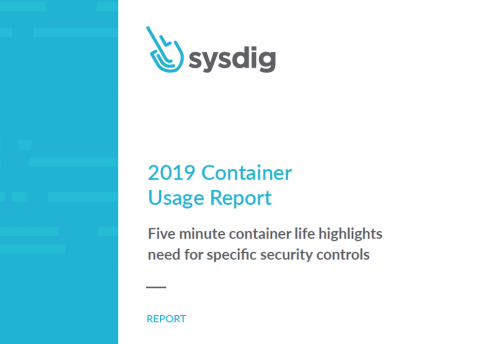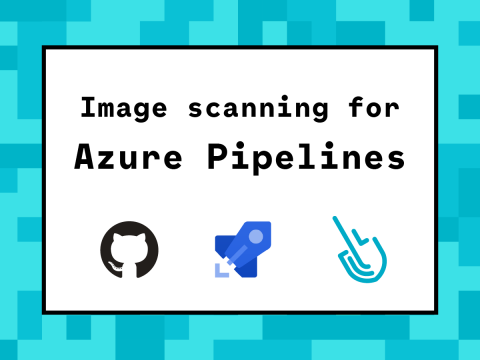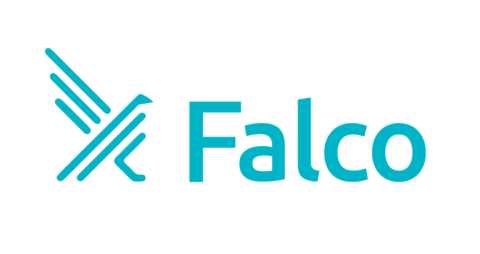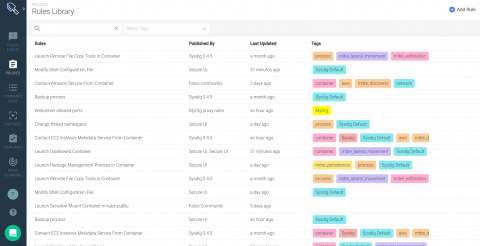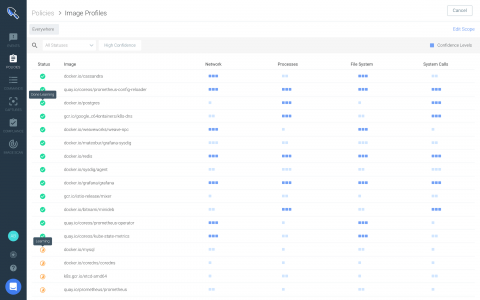Sysdig 2019 Container Usage Report: New Kubernetes and security insights
We’re excited today to release the Sysdig 2019 Container Usage Report. Continued momentum for Kubernetes and greater adoption of cloud-native architectures are changing not just usage patterns, but processes and organizational structures as well. One of the surprising insights this year is the 2X increase in the number of containers that live for less than five minutes. As services grow more dynamic, cloud teams are recognizing the need to integrate security into their DevOps processes.


